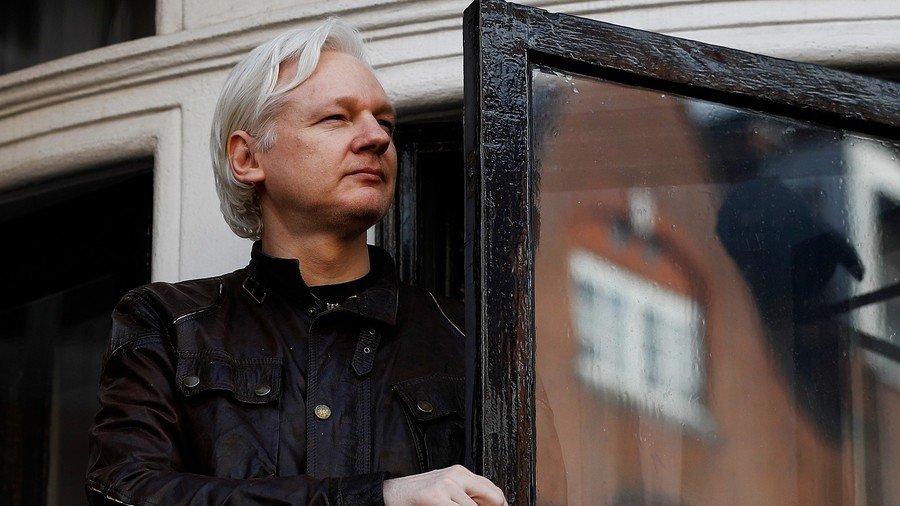Extradition confidentiality: UK tribunal blocks release of Assange files

A UK tribunal has refused to release key details on communications between British and Swedish authorities over Julian Assange, in an effort to protect the Crown Prosecution Service’s relationship with foreign authorities.
An Italian investigative journalist’s attempt to pull back the shroud covering the long-running Assange case, which involves four nations and at least two government prosecution agencies, ended in failure earlier this month.
Stefania Maurizi, of the Italian newspaper La Repubblica, had her appeal to the UK First-tier Tribunal to obtain documents held by the Crown Prosecution Service (CPS) in London dismissed on December 12. Maurizi had sought access to the full correspondence between the UK’s CPS and the Swedish Prosecution Authority (SPA). The reporter has been trying to get a hold of the documents for two years.
READ MORE: Julian Assange rape allegations: The story behind the saga
The quest for further information could have also potentially uncovered any dealings between the UK, Sweden, the US and Ecuador - the latter being the nation in which Assange has sought asylum. It may have also finally addressed Assange’s fears that extradition to Sweden could ultimately pave the way for rendition to the US.
However, in the appeal documents seen by RT.com, the tribunal agreed that if any such request exists then “disclosing it would tip off Mr Assange illegitimately and undesirably.”
Following sexual allegations deriving from a visit to Sweden in August 2010, Assange lost an appeal over his extradition to the Scandinavian nation. Assange, who denies the allegations, subsequently claimed diplomatic asylum in London’s Ecuadorian embassy, where he has remained for more than five years.
READ MORE: Swedish prosecutor drops case against Julian Assange
The case, which Swedish prosecutors have since “discontinued,” resulted in Assange being “arbitrarily detained” in the building, according to the UN.
Extradition protection
Information regarding the inner workings of the case will remain close to the chests of lawyers and government officials, however. The reason for the covertness? To protect the UK’s extradition process and relationship with foreign countries, according to the tribunal on information rights.
The authority has ruled the CPS is obligated to maintain the confidence, in this case, of it’s Swedish counterpart. The tribunal said it was convinced by the argument that full disclosure of the documents “would likely damage the functions of the CPS in extradition proceedings, with the knock-on effects… for the relationship with the SPA in particular and with other prosecuting authorities or judicial authorities more generally.”
US extradition
In her appeal, Maurizi cited public interest and the fact that people deserved clarity over whether the US had inquired about Assange’s extradition. Indeed, it’s been reported a number of times that Assange and WikiLeaks were the subject of US investigation. However, it is unclear if there was an attempt to move Assange to America.
#Assange ‘stands by’ #US extradition offer, promises ‘big publishing year ahead’ https://t.co/rmsy5rHGAw#Wikileakspic.twitter.com/bSpDciGVe1
— RT (@RT_com) January 19, 2017
That question will at the moment remain unanswered, with the tribunal agreeing with the CPS that a release would be a lose-lose situation for authorities.
“If the correspondence between the SPA and the CPS did not contain any mention of an extradition request by the US, this would tell the public nothing about whether such a request had in fact been made by the US or not. If there was such a request from the US mentioned in the correspondence between the SPA and the CPS, disclosing it would tip off Mr Assange illegitimately and undesirably,” a CPS lawyer said during tribunal evidence.
RT.com has contacted La Repubblica to ask if it will continue its pursuit of the documents in a higher tribunal.
A disagreement with a tribunal decision can be taken to the General Regulatory Chamber.














